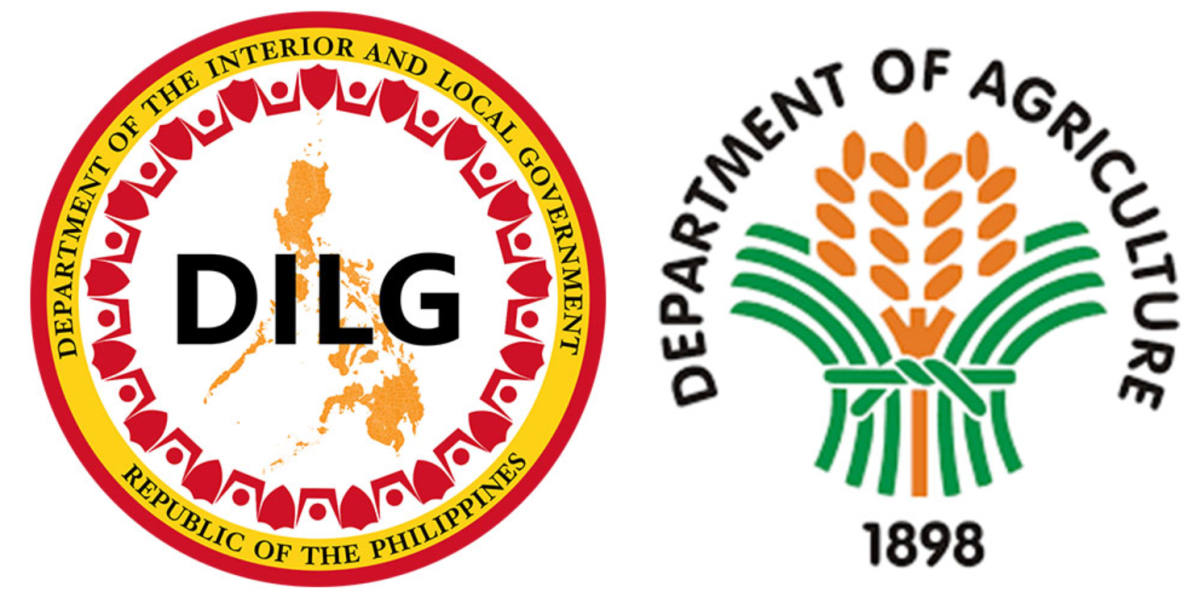DA, DILG: Co-ops, farmers may continue operating during ECQ
Why are some co-ops unable to operate and forced to close during the quarantine? This was the question asked by co-op leaders at an online meeting between the Cooperative Development Authority (CDA), COOP-NATCCO Partylist, and the Philippine Cooperative Center (PCC), and representatives of NATCCO primary co-operatives.
President Rodrigo Duterte signed into law Republic Act 11469, known as the “Bayanihan Heal as One Act of 2020, on March 24. The law enforces a quarantine – meaning people are to stay home. Other powers of the President include regulating transportation and traffic, under Section 4r and 4s.
However, exemptions to the quarantine are workers of “essential” businesses or institutions like key national government agencies and local governments, medical personnel, armed forces, law enforcers, finance sector workers, and workers in the food industry value chain.
In Section 4aa, the Law also gave the President power to “direct all . . . financial institutions, public and private, to implement a minimum of a 30-day grace period for the payment of all loans . . .”, to which co-ops have complied by making announcement to their members through social media.
Possibly missed by some is that financial institutions, though they have given such grace period, must continue to operate. The Implementing Rules and Regulations (IRR) of the Bayanihan Law
Section 4n of the RA 11469 says Government will “ensure the availability of credit to the productive sectors of the economy especially in the countryside through measures such as, but not limited to lowering the effective lending rates of interest and reserve requirements of lending institutions;”
Unfortunately, some co-ops have remained closed and are not included in the “essential” list of businesses or institutions that may operate during the quarantine. Some frontliners manning checkpoints do not know that co-ops are regarded as “essential” and prevent co-op staff from traveling to work.
This has posed a big problem for the sustainability of many co-ops in the country, especially in urban areas.
The Bayanihan Law emphasizes Section 4p, that while there will be an enforced quarantine, the President will “ensure the availability of essential goods, in particular food and medicine” and will “facilitate and/or minimize disruption to the supply chain for basic commodities . . .”
Farmers have also prohibited from leaving their homes, which does not bode well for food production.
The Department of Interior & Local Government (DILG) issued an Advisory dated March 24 reminding Local Governments that : “All farming and fishing activities shall continue to ensure sufficient food supply across the country. These activities include land preparation, planting, crop maintenance, harvesting, threshing, drying, milling, sorting, packaging and trading.”
It added that all farmers and farm workers shall be exempted from doing home quarantine provided that they are healthy and practice social distancing while in the farm.
DILG Region 10 Director Arnel Agabe said Government must “make sure that ‘hunger’ would not add up to our various concerns.”
The Department of Agriculture had also issued Memorandum Circular 07 and 09 Series of 2020 on “Ensuring Unhampered Movement of all agricultural and fishery inputs, food Products and agribusiness personnel Nationwide.”
Raul Montemayor of the National Cooperative Marketing Federation (NCMF) posted on social media the DILG Advisory: “We receive a lot of reports that other farmers are prohibited from going out of the house to cultivate because of quarantine. Sometimes, they can’t go to what they are saying whether it’s in another barangay or neighboring towns. This is also a problem with senior citizen farmers who are still strong but alone farming their families. So they are exempted from quarantine. And to the extent of the fields, social distancing is natural there.”
At the online meeting, the leaders agreed that co-ops must be included in the Government’s economic stimulus package and that CDA should ensure the inclusion.
They also insisted with the CDA that co-ops be included in the “essential” businesses that can conduct business during ECQ.
Asked why and how some co-ops able to follow up, the leaders revealed that some co-ops know the Mayor and are thus, permitted to operate. But that is on a case-to-case basis.
Engineer Romeo Manzano of MSU-IIT National MPC and Cielo Garrido of San Dionisio Credit Cooperative in Paranaque City said co-ops should be allowed to operate not on a case-to-case basis, and urged the PCC to come up with a Manifesto or a letter to the President.
Congressman Ben Canama said he would try to make another follow up.
PCC Chairperson Gary Leonardo said: “PCC is a member of the ICA Philippine group, ten major federations including CDA. We have actually had these discussions in the chat group. Some of the issues discussed were – we have put up a report and submitted copies to Trade & Industry Secretary Ramon Lopez, Congressman Ben Canama and Senator Miguel Zubiri – we should also look at post-covid scenarios.”
A survey by the NATCCO Network Member Relations Group done during the quarantine as of April 20 reveals 338 of the NATCCO’s more than 800 member-cooperatives are open.

